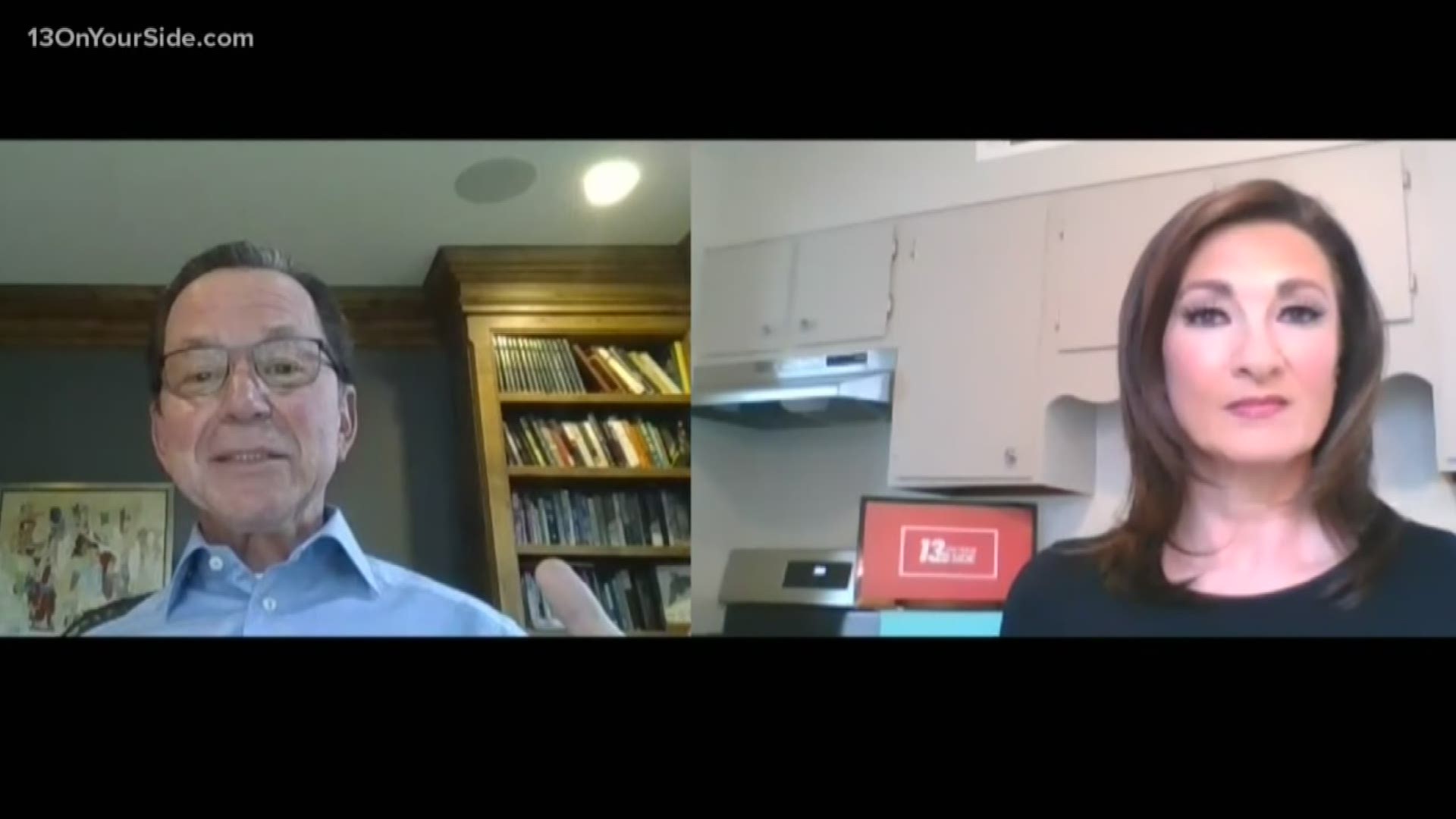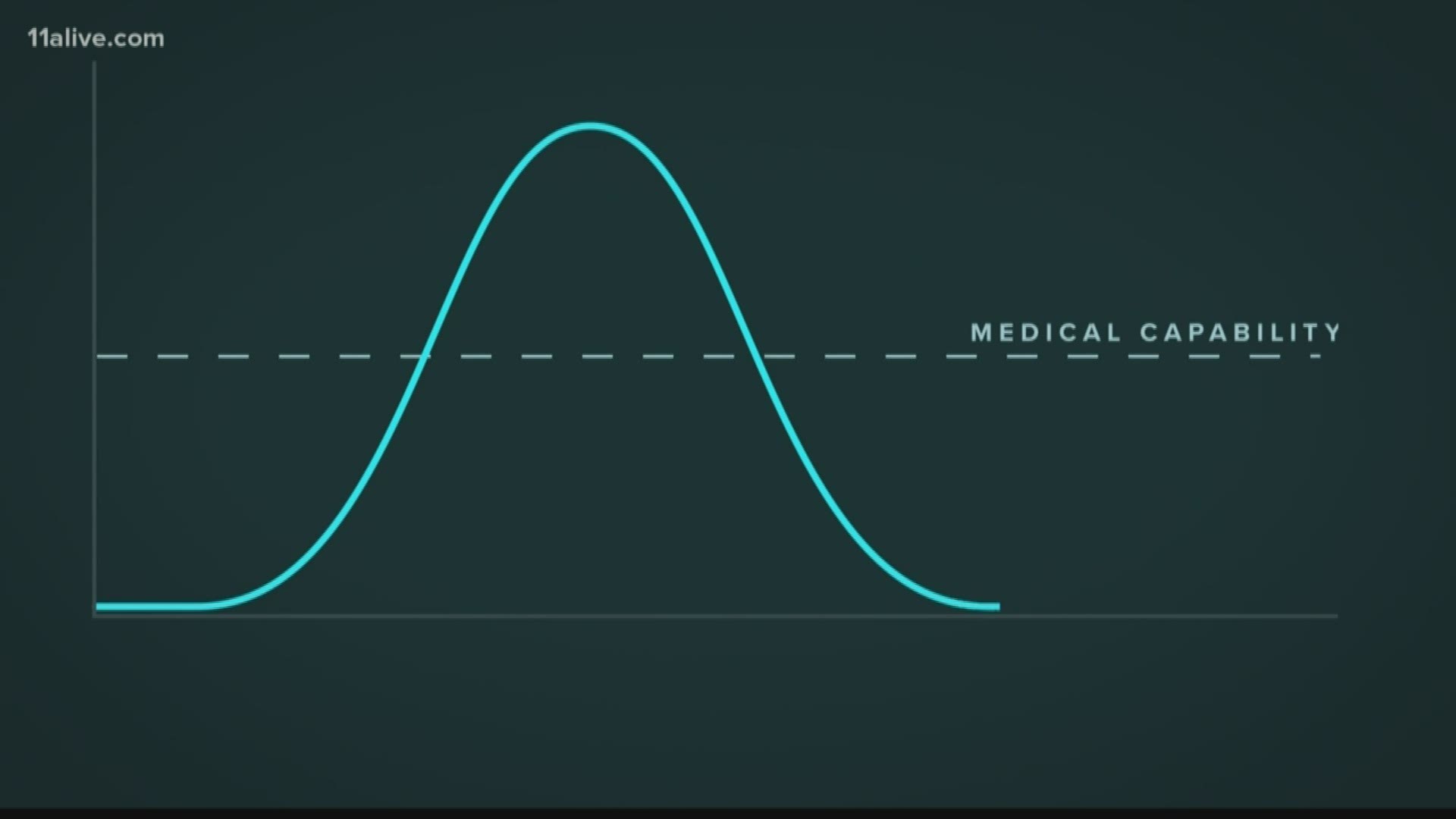GRAND RAPIDS, Mich. — The novel coronavirus, COVID-19, can cause severe respiratory distress in patients -- which would make the lungs the likely victim of COVID-19 damage. However, experts say the heart is actually most at risk for damage from the virus.
According to a recent study by experts at the University of Texas Health Science Center in Houston, COVID-19 can have fatal consequences for people with underlying cardiovascular disease. COVID-19 causes severe inflammation in the body which can trigger cardiac events like blockage, and even heart disease, to an otherwise healthy heart.
13 ON YOUR SIDE's health reporter Val Lego sat down with the Division Chief of Cardiology for Spectrum Health, Dr. David Wohns, to learn more about the worst outcomes for patients with underlying heart conditions.
RELATED: What we're learning about COVID-19
Researchers have determined that individuals with pre-existing cardiovascular conditions have a 10.5% fatality rate. Individuals with coronary heart disease or high blood pressure are more likely to contract the virus and require critical care than healthier individuals.
The study's authors explained research from previous coronavirus and influenza epidemics suggests viral infections can cause acute coronary syndromes, arrhythmias, and the development of, or increased risk of, heart failure. However, little is known yet about all the effects that viral illnesses, like COVID-19, can have on the cardiovascular system.
STATE RECOMMENDATIONS FOR COVID-19
Patients with confirmed infection have reportedly had mild to severe respiratory illness with symptoms of:
- Fever
- Cough
- Shortness of breath
The best prevention for viruses, such as influenza, the common cold or COVID-19 is to:
- If you think you have been exposed to COVID-19, call your health care provider. If you do not have a health care provider, call the nearest hospital.
- Wash your hands often with soap and warm water for 20 seconds. If not available, use hand sanitizer.
- Avoid touching your eyes, nose, or mouth with unwashed hands.
- Cover your mouth and nose with a tissue or upper sleeve when coughing or sneezing.
- Avoid contact with people who are sick.
- If you are sick, stay home, and avoid contact with others.
- Stay at least 6 feet away from others when in a public setting.
RELATED VIDEO:
MORE CORONAVIRUS NEWS:
- Young mother battling COVID-19: 'I would have not left my house if I knew how miserable this was'
- VERIFY: Viral video with coronavirus claims is full of false info
- 'Pandemic' scientist says his team has discovered potential cure for COVID-19
- Experts: In rare cases, pink eye was an early warning sign of coronavirus
►Make it easy to keep up to date with more stories like this. Download the 13 ON YOUR SIDE app now.
Have a news tip? Email news@13onyourside.com, visit our Facebook page or Twitter. Subscribe to our YouTube channel.


